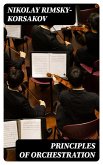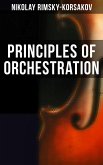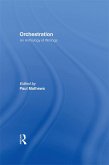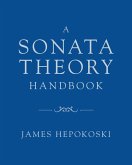In "Principles of Orchestration," Nikolay Rimsky-Korsakov meticulously elucidates the art and science of orchestration, providing a comprehensive guide to achieving balance, color, and expression in orchestral writing. Written in an accessible yet scholarly style, this seminal treatise showcases Rimsky-Korsakov's understanding of instrumental techniques and timbres, with a rich array of examples from his own compositions and those of his contemporaries. Situated within the context of late Romanticism, the book seeks to demystify the orchestral palette, articulating the principles that govern the effective use of instruments in concert music. Nikolay Rimsky-Korsakov, a leading figure of the Russian nationalist movement, was deeply influenced by his own experiences as a composer and conductor. His dedication to enhancing the Russian musical landscape through orchestration can be traced to his formal training with Balakirev and his tenure with the Mariinsky Theatre, where he honed his skills in real-world settings. These experiences galvanized his conviction that a profound understanding of orchestration could elevate the emotional impact and narrative depth of musical works. For any composer, conductor, or serious music enthusiast, "Principles of Orchestration" serves as an invaluable resource that transcends its era. Rimsky-Korsakov's insights resonate with timeless relevance, making this book a must-read for those looking to deepen their understanding of orchestral music and elevate their own compositions.
Dieser Download kann aus rechtlichen Gründen nur mit Rechnungsadresse in A, B, BG, CY, CZ, D, DK, EW, FIN, F, GR, HR, H, IRL, I, LT, L, LR, M, NL, PL, P, R, S, SLO, SK ausgeliefert werden.









